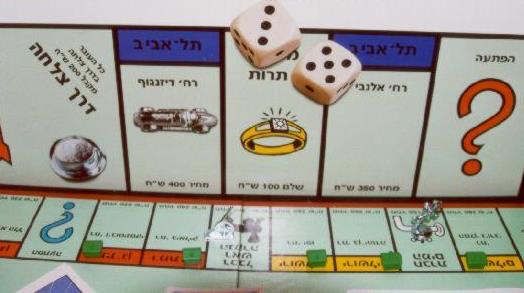How easy is it to make money on Israeli rental property? Shaun Isaacson offers some suggestions to help increase the return on your investment.
 Firstly, investors should decide up-front whether their goal is long-term or short-term return on investment. If you want to buy a property now that you can sell in 5-10 years and make a profit, you may invest differently than someone who is looking for a steady 5% return over 20 years. Similarly, if you intend to stay in the property every summer or store possessions in the cupboards for your annual visits, you will reduce both its rentability to good long-term tenants and also the rental income that you can earn.
Firstly, investors should decide up-front whether their goal is long-term or short-term return on investment. If you want to buy a property now that you can sell in 5-10 years and make a profit, you may invest differently than someone who is looking for a steady 5% return over 20 years. Similarly, if you intend to stay in the property every summer or store possessions in the cupboards for your annual visits, you will reduce both its rentability to good long-term tenants and also the rental income that you can earn.
What is ROI?
The return on your investment is calculated by dividing the return you receive by the cost of your investment. So, if you buy an apartment in Israel for $150,000 and rent it out for $1,500 a month, your gross return would be 12% per year ($18,000 ÷ $150,000 = 12%). However the net return on your investment may be significantly less. For example, if you have to spend $9,000 on repairs, taxes and management fees during one year, you would realize a return on your investment of just 6%.
Mistakes that Reduce your ROI
- Bad Tenants
If your tenants are unreliable, they can reduce the ROI of your investment by not paying their rent, moving out unexpectedly, or incurring costs by damaging your property. It is important to be particular about the tenants you rent to, which means meeting them in person and running background checks on them, including contacting their previous landlords and their employers. This may not be standard practice among Israeli landlords, but a good management company will take extra pains to ensure that the people you let into your property are people you can trust.
- Renting to Friends
It happens often in Israel – a landlord (or a friend or family member) has a friend who needs a place to live, so they do them a favour, but they turn out to be a bad tenant who takes advantage of their kindness. If you want to maximize the return on your investment, you must be firm and assertive – treat your investment like a business and not a charity!
- Ignoring Small Problems
When landlords are cheap about fixing small problems in their property right away, they often incur major costs in the longer term. Yes, a stitch in time saves nine, and a small drip from a pipe should be a warning that the plumbing needs attention from an expert plumber, not a sticking-plaster repair by a well-meaning friend. Otherwise, you could be looking at a major clean-up bill for a long-term leak, and a major hole in your annual income.
- Selecting Properties Carefully
In many areas of Israel, properties were built quickly and cheaply in the 1970s and 80s and the cracks are now beginning to show. Do your homework before buying an investment property; speak to the neighbours about the state of the building and factor in the likely maintenance costs. It is generally cheaper to fix everything before your first tenants move in, so as to avoid the costs of rehousing them or compensating them for damaged furniture when they call and tell you that the roof is leaking.
- Choose a Nice Neighborhood
If your property is in a run-down or inaccessible neighbourhood with poor facilities, it will be difficult to attract good tenants. Look for properties with good public transport connections and/or off-street parking – both major considerations for tenants who commute to work and earn good salaries! You can generally charge higher rent if the property has good amenities, which will increase your annual rate of return.
So, if you are thinking of making money from an Israeli rental property, plan carefully before choosing your investment in order to maximize your return. Talk to us at Creative Estates Israel about making the right choices and managing your property efficiently for maximum ROI.
